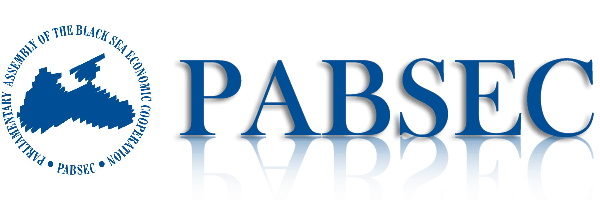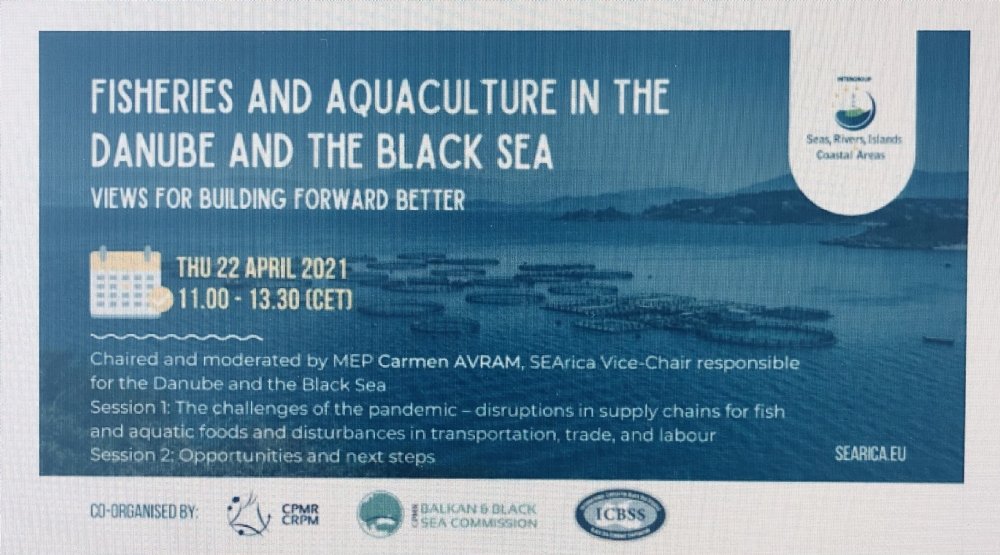Participation of the PABSEC International Secretariat to the online conference “Fisheries and Aquaculture in the Danube and the Black Sea region: views for building forward better”, 22 April 2021
Mr. Miltiadis Makrygiannis, PABSEC Deputy Secretary General, attended the online conference titled “Fisheries and Aquaculture in the Danube and the Black Sea region: views for building forward better”, co-organized by the Balkan and Black Sea Commission of the Conference of Peripheral Maritime Regions of Europe (CPMR BBSC) and the International Centre for Black Sea Studies (ICBSS), on 22 April 2021.
The online conference, hosted and chaired by MEP Carmen AVRAM, was divided into two sessions. The first one addressed the challenges of the fisheries sector related to the pandemic, such as disruptions in supply chains for fish and aquatic foods caused by disturbances of transportation, trade, and labour. The second session discussed opportunities and next steps for the post-COVID-19 era.
As the speakers pointed, fishing and aquaculture are among the hardest hit sectors during the pandemic of COVID-19, as demand for fisheries and seafood has been experiencing a dramatic downturn, due to preventative measures against COVID-19 that have led retailers, restaurants, and other large-scale buyers to reduce or temporarily close down their activities. Furthermore, sectors on which the fisheries and seafood industries depend on, such as logistics, have also been affected by the situation.
Moreover, the fishing and aquaculture production sectors are extremely diverse, both freshwater and marine, and of significant socio-economic importance to the wider Black Sea region. The measures adopted to contain the COVID-19 outbreak at national and international level, have impacted directly or indirectly on the operations of the sectors, resulting in challenges but also opportunities for the next day.
The conference aimed at providing a dialogue platform amongst EU and national policy-makers and key regional stakeholders to encourage a debate that allowed for the better understanding of the challenges, as faced by stakeholders on the ground, and the different opportunities that derive from the various EU policies, strategies and initiatives in this diverse but with high potential region.

